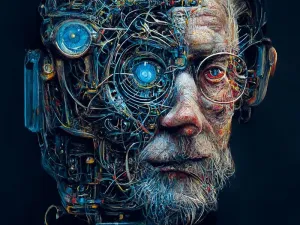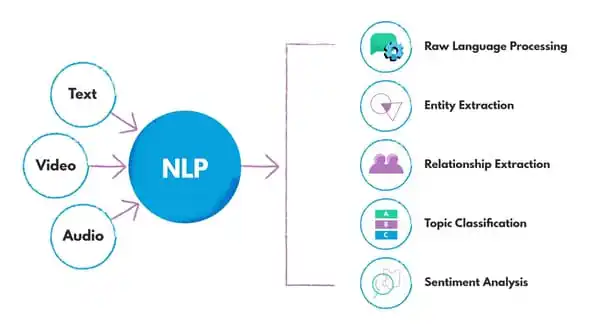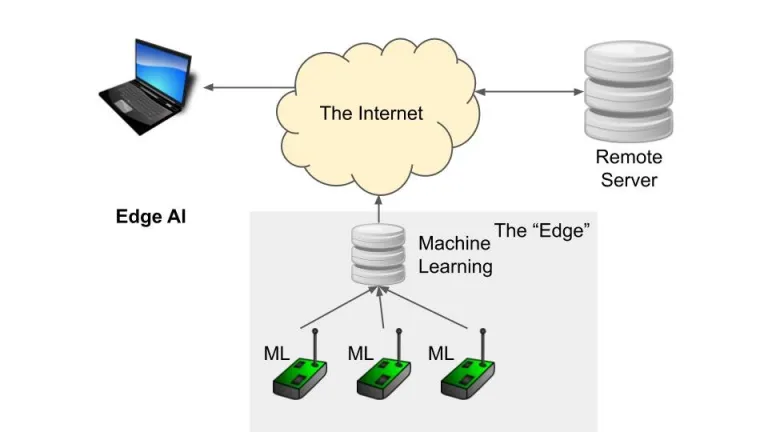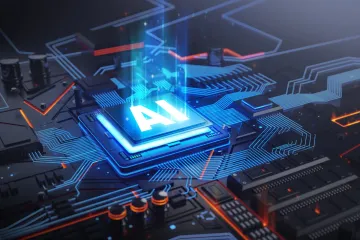
Artificial Intelligence (AI) continues to advance at a rapid pace, transforming various industries and revolutionizing the way we live and work. As we step into 2023, several AI trends are poised to shape the future. From advancements in natural language processing to breakthroughs in robotics, here are the top 10 AI trends to watch this year.
Natural Language Processing (NLP) Dominance:
- NLP has come a long way, enabling machines to understand and interpret human language more accurately. In 2023, NLP will continue to evolve, empowering AI systems to engage in complex conversations, extract insights from unstructured data, and provide more accurate language translations.
Reinforcement Learning Advancements:
- Reinforcement learning, a subset of machine learning, will witness significant advancements in 2023. AI algorithms will become more adept at learning from their environment through trial and error, leading to improvements in autonomous vehicles, robotics, and gaming.
Enhanced Computer Vision:
- Computer vision has made tremendous strides in recent years, and in 2023, we can expect further breakthroughs. AI-powered systems will demonstrate remarkable accuracy in image recognition, object detection, and facial recognition, enabling applications in healthcare, surveillance, and autonomous systems.
Ethical AI Frameworks:
- With the growing influence of AI, ethical considerations become paramount. In 2023, the development of robust ethical AI frameworks will gain prominence. These frameworks will focus on transparency, accountability, and fairness, ensuring AI systems are deployed responsibly and ethically.
Edge AI Revolution:
- Edge AI, which brings AI capabilities closer to the source of data, will witness a revolution in 2023. The demand for real-time AI processing, privacy, and reduced latency will drive the deployment of AI models on edge devices like smartphones, IoT devices, and drones.
AI in Cybersecurity:
- As cyber threats become more sophisticated, AI will play a pivotal role in strengthening cybersecurity defenses. AI-powered systems will proactively detect and respond to threats, minimizing the risk of data breaches and ensuring enhanced security for individuals and organizations.
AI-driven Healthcare:
- AI’s impact on the healthcare industry will continue to expand in 2023. AI-powered diagnostic tools, personalized medicine, and predictive analytics will improve patient outcomes, enable early disease detection, and optimize healthcare resource allocation.
AI in Education:
- Education will witness a transformational shift with the integration of AI technologies. Adaptive learning platforms, intelligent tutoring systems, and AI-powered assessments will personalize education, making it more accessible, interactive, and effective for students worldwide.
AI in Art:
- In the realm of creative arts, AI has emerged as a powerful tool. The year 2023 will witness the rise of the best AI art generators, capable of producing stunning artworks, paintings, and designs. Artists and designers will leverage these tools to augment their creativity and push the boundaries of artistic expression.

Autonomous Systems:
- Autonomous systems, such as self-driving cars and unmanned aerial vehicles, will make significant strides in 2023. AI algorithms will enhance their decision-making capabilities, leading to safer and more efficient transportation systems.
Conclusion:
The year 2023 promises to be an exciting time for artificial intelligence, with a multitude of trends shaping various industries. From advancements in natural language processing and computer vision to the integration of AI in healthcare and education, the transformative power of AI continues to expand. Additionally, the emergence of the best AI art generators provides a new dimension for artists and designers to explore their creativity.
As AI technology continues to evolve, it is essential to prioritize ethical considerations and develop robust frameworks to ensure responsible AI development and deployment. Ethical AI frameworks focusing on transparency, accountability, and fairness will play a pivotal role in building trust and addressing concerns surrounding AI’s impact on society.
Furthermore, edge AI revolution and advancements in autonomous systems will pave the way for real-time AI processing, enhanced privacy, and safer transportation systems. Industries such as cybersecurity and healthcare will benefit from AI-powered solutions, detecting threats and improving patient outcomes.
In the ever-changing landscape of AI, staying informed about the latest trends is crucial. The top 10 AI trends outlined in this article provide a glimpse into the transformative potential of AI in 2023. As we embark on this exciting journey, let us embrace the opportunities and challenges that AI presents, working towards harnessing its full potential for the betterment of society.
FAQs
1. What is artificial intelligence (AI)?
Artificial Intelligence refers to the simulation of human intelligence in machines that are programmed to think and learn like humans. It involves the development of algorithms and models that enable computers to perform tasks that typically require human intelligence, such as speech recognition, decision-making, problem-solving, and pattern recognition.
2. What are the top AI trends to watch in 2023?
The top 10 AI trends to watch in 2023 include advancements in natural language processing, reinforcement learning, computer vision, ethical AI frameworks, edge AI revolution, AI in cybersecurity, AI-driven healthcare, AI in education, the emergence of the best AI art generators, and progress in autonomous systems.
3. What is natural language processing (NLP)?

Natural Language Processing is a subfield of AI that focuses on enabling computers to understand, interpret, and generate human language. It involves tasks such as language translation, sentiment analysis, speech recognition, and text generation. In 2023, NLP is expected to witness significant advancements, leading to more accurate language understanding and translation capabilities.
4. What is edge AI?

Edge AI refers to the deployment of AI models and algorithms on edge devices, such as smartphones, IoT devices, and drones, closer to the source of data. By processing data locally, edge AI reduces latency, enhances privacy, and enables real-time AI applications in areas with limited connectivity.
5. How will AI impact cybersecurity in 2023?
AI will play a crucial role in bolstering cybersecurity defenses in 2023. AI-powered systems can detect patterns and anomalies in large datasets, enabling proactive threat detection and response. They can also automate security operations, minimize human errors, and enhance the overall resilience of organizations against cyber threats.
6. What are the applications of AI in healthcare?
AI has numerous applications in healthcare, including diagnostic assistance, drug discovery, personalized medicine, patient monitoring, and healthcare resource optimization. In 2023, AI-driven healthcare technologies will continue to improve patient outcomes, enable early disease detection, and streamline healthcare delivery processes.
7. How will AI transform education in 2023?
AI will revolutionize education by enabling adaptive learning platforms, intelligent tutoring systems, and AI-powered assessments. These technologies will personalize education, adapt to individual student needs, provide personalized feedback, and enhance the overall learning experience.

